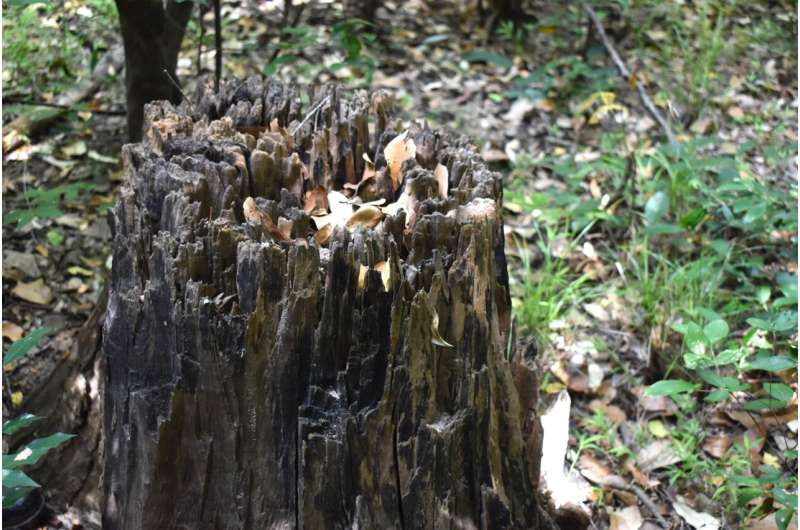July 27, 2023 report
This article has been reviewed according to Science X's editorial process and policies. Editors have highlighted the following attributes while ensuring the content's credibility:
fact-checked
peer-reviewed publication
trusted source
proofread
Fungi that break down hardwood trees can do the same with plastic, study shows

A team of plant and molecular biologists from the University of Kelaniya and the University of Peradeniya, both in Sri Lanka, reports that many types of fungi that break down hardwood trees can also break down polyethylene, a common kind of plastic. In their study, reported in PLOS ONE, the group tested 21 species of hardwood-decaying fungi in their lab.
Prior research has identified approximately 430 species of fungi and bacteria that are able to break down different kinds of plastic. In this new effort, the researchers have found another species—a type that breaks down hardwood trees.
The work began when a member of their group noticed that several types of fungi were able to break down dead hardwood trees growing in a forest reserve. Prior research has shown that breaking down hardwood is no easy feat—the wood is bound by lignin, a strong polymer.
Prior research has also found that the fungi are able to break down such material by using powerful enzymes. The team wondered if the fungi might be able to break down man-made polymers such as polyethylene. To find out, they collected 50 samples from the forest.
Back in the lab, the team isolated the fungi by species and then set them apart in small sample jars. They then placed sheet plastic in some of the jars, and both plastic and wood in some of the others. All the jars were stored at 28 to 30° C for 45 days. At that point, each of the jars and their contents were studied to determine whether the fungi had eaten some of the wood or plastic. This was accomplished using an ordinary scale—when fungi break down wood, the lignin is converted to carbon dioxide, which is released into the air, leaving the wood lighter.
The team found that all the types of fungi tested did indeed break down the sheet plastic. They also found that more plastic was eaten in the absence of wood. The findings may contribute to efforts to use fungi to process at least some of the massive amounts of plastic waste that are produced each year around the world.
More information: Prameesha Perera et al, Wood decay fungi show enhanced biodeterioration of low-density polyethylene in the absence of wood in culture media, PLOS ONE (2023). DOI: 10.1371/journal.pone.0288133
Journal information: PLoS ONE
© 2023 Science X Network





















